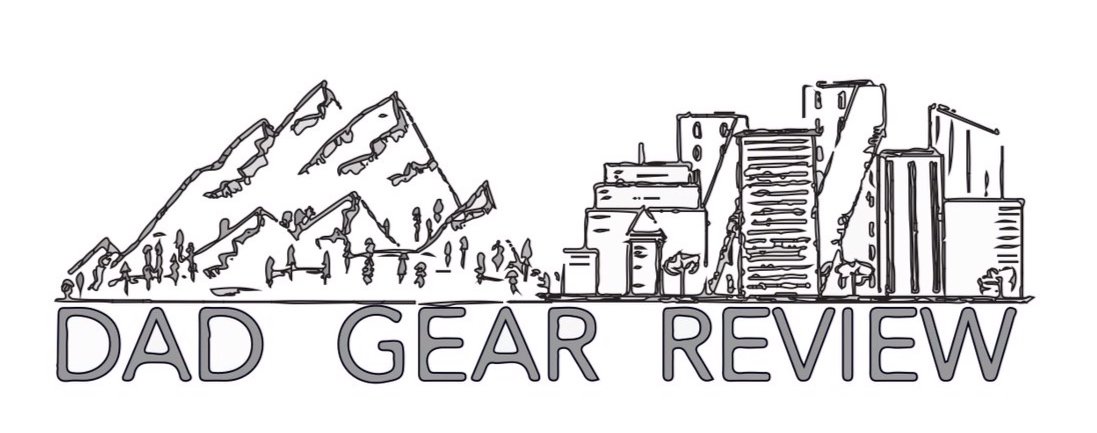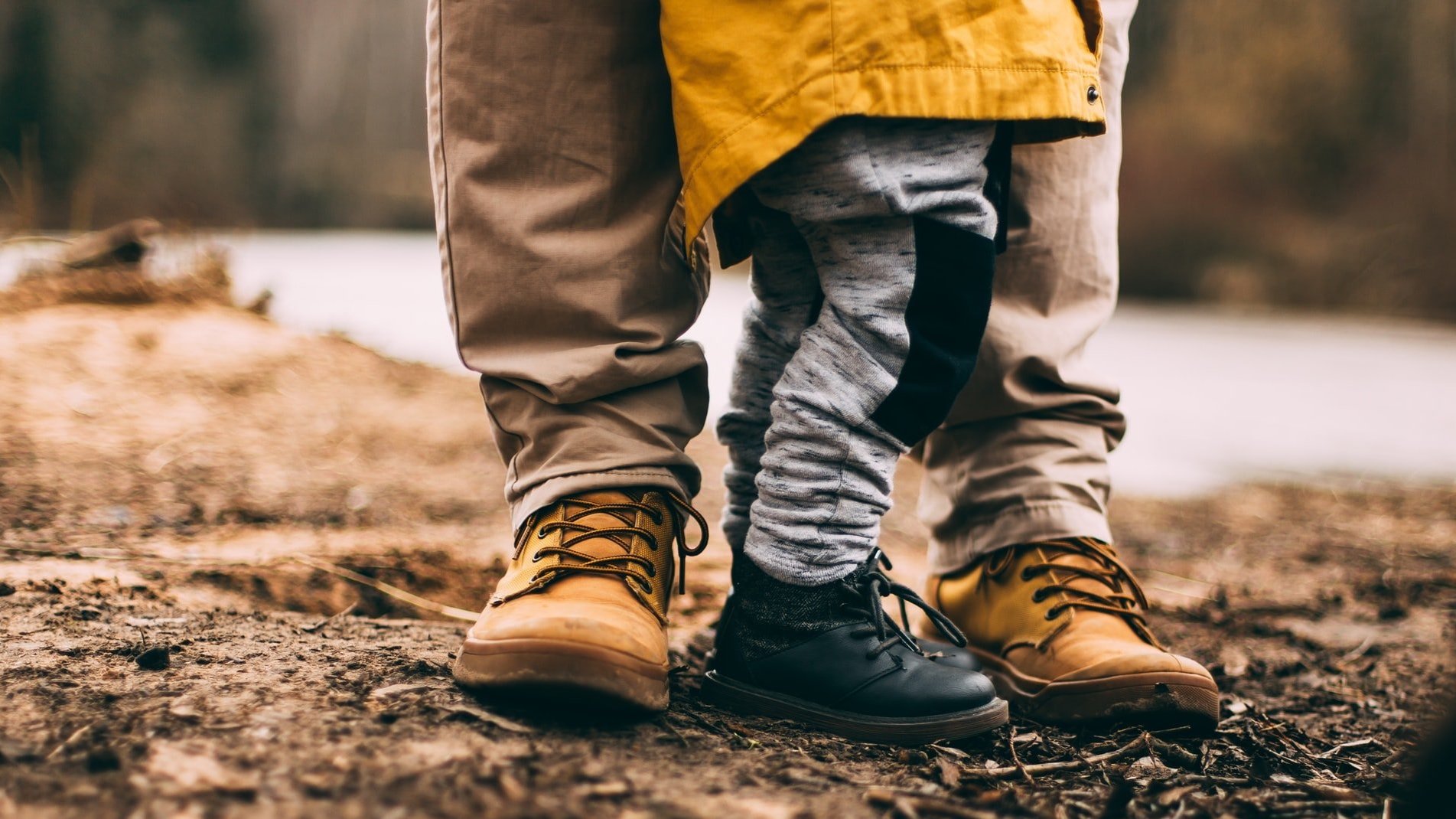
How to Go Camping with Toddlers… and Without Regrets
Parenting a toddler is often enjoyable and rewarding. Watching their sponge-like minds soak in new information, hearing the first uses of new words, watching countless new and exciting first experiences, and enjoying all the smiles and laughs is remarkable and precious – it really does pass quickly, big picture.
But of course spending an extended amount of time with a toddler can also be pretty tough stuff, with the tears, tantrums, crankiness, hanger, fatigue, and all the other drama little kids go through. It’s tough stuff even when you’re at home with all the snacks, toys, stuffed buddies, bedding, bathrooms, and so forth to which your little one and the rest of your family are accustomed.
Given the everyday challenges of caring for little kids, is it crazy to take little kids camping? No, not at all. In fact, it would be crazy to miss out on the opportunity to get little kids out there, to expose them to camping, to the woods, to hikes and paddling and nature watching, to the crackle of the fire at night, all of it. If you have the time and wherewithal to bring a toddler camping, you should do it. And done right, camping with young kids will engender a love of the lifestyle in the youngsters and will only deepen your appreciation for the outdoors as well.
But oh goodness, you have to do it right, because a camping trip with little kids can go badly in so many ways, and a memorably bad family camping experience can sour the children on the whole enterprise.
In order to have a great camping trip with toddlers, there are a few areas to think through. And don’t worry, we cover them all here in depth.
But to put the short story first, the things to focus on before camping with young children are:
Planning Ahead: making Gear lists, introducing kids to the tent and sleeping bag, reading books on camping, etc.
Campsite Fun for Kids: Curating the campsite with a thoughtful but limited selection of books, toys, and fun camping gear.
Getting Out in Nature: Kid carrier hiking packs, a rugged off-road wagon, a canoe – Fun and Adventure await if you have the right Gear. And the right mindset.
Toddler Campsite Safety: An ever watchful eye is all-important, so set up your campsite and even arrange the interior of your tent so you can always be on the lookout.
Redundancy: Bring backup pajamas. Bring an alternative option for a rejected dinner. Bring spare batteries for the sound machine and lantern. Keep a special toy in reserve for meltdown abatement. The takeaway is: always have a Plan B.
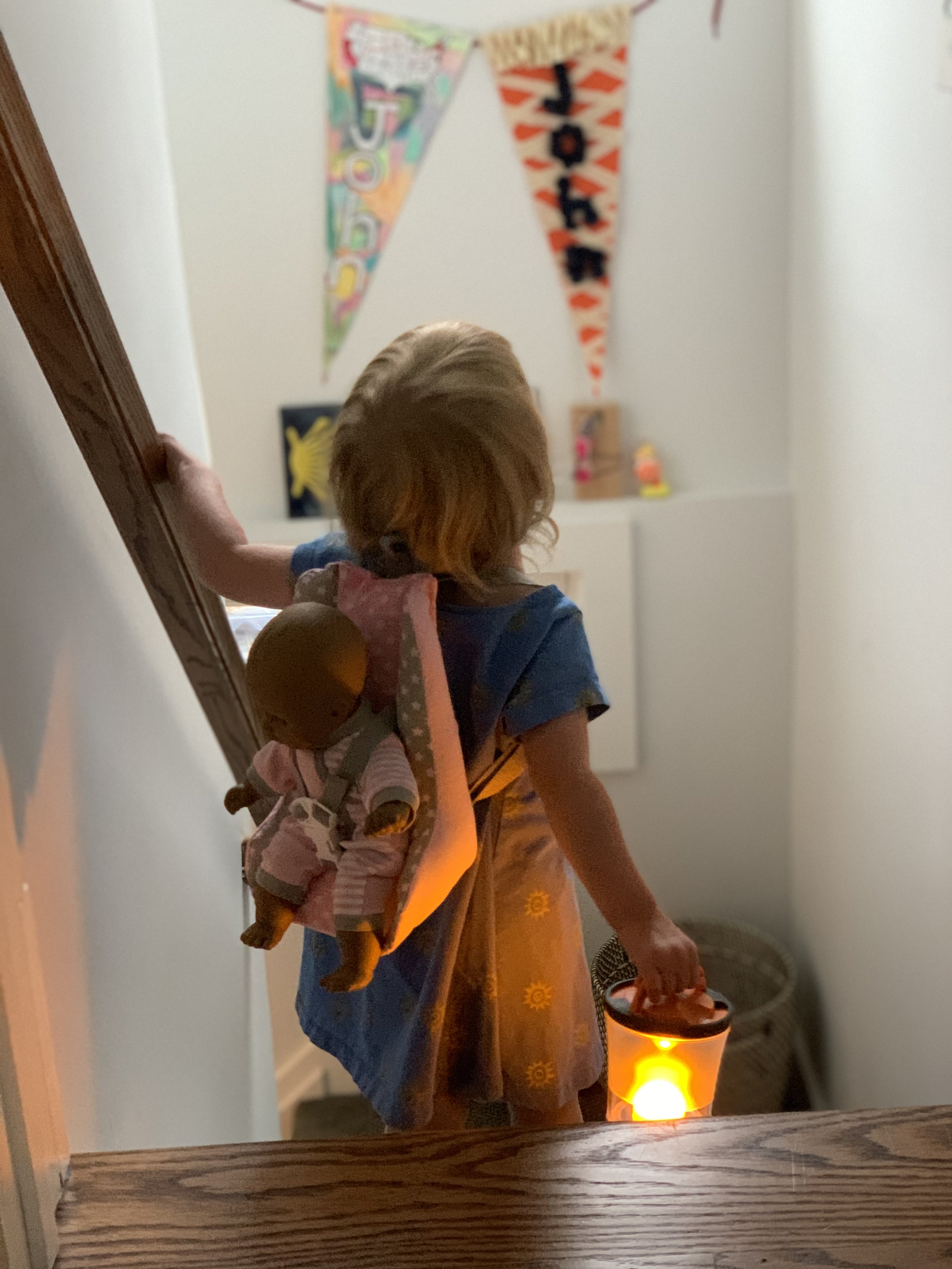
Practicing for new experiences helps a toddler build excitement and removes potential inexpressible fears.
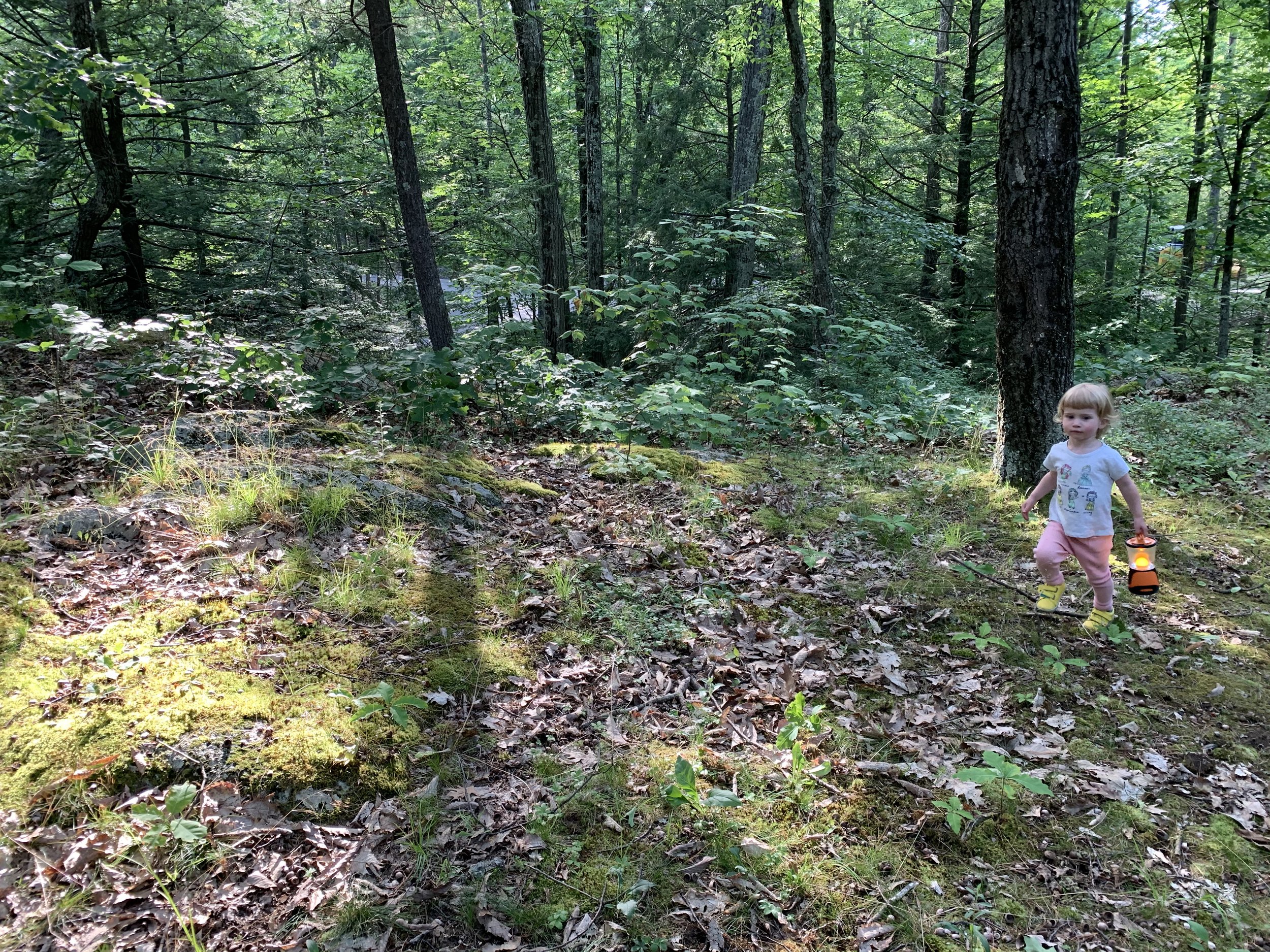
When a toddler has the opportunity to translate their at-home practice into real life experiences, they gain self-confidence and agency.
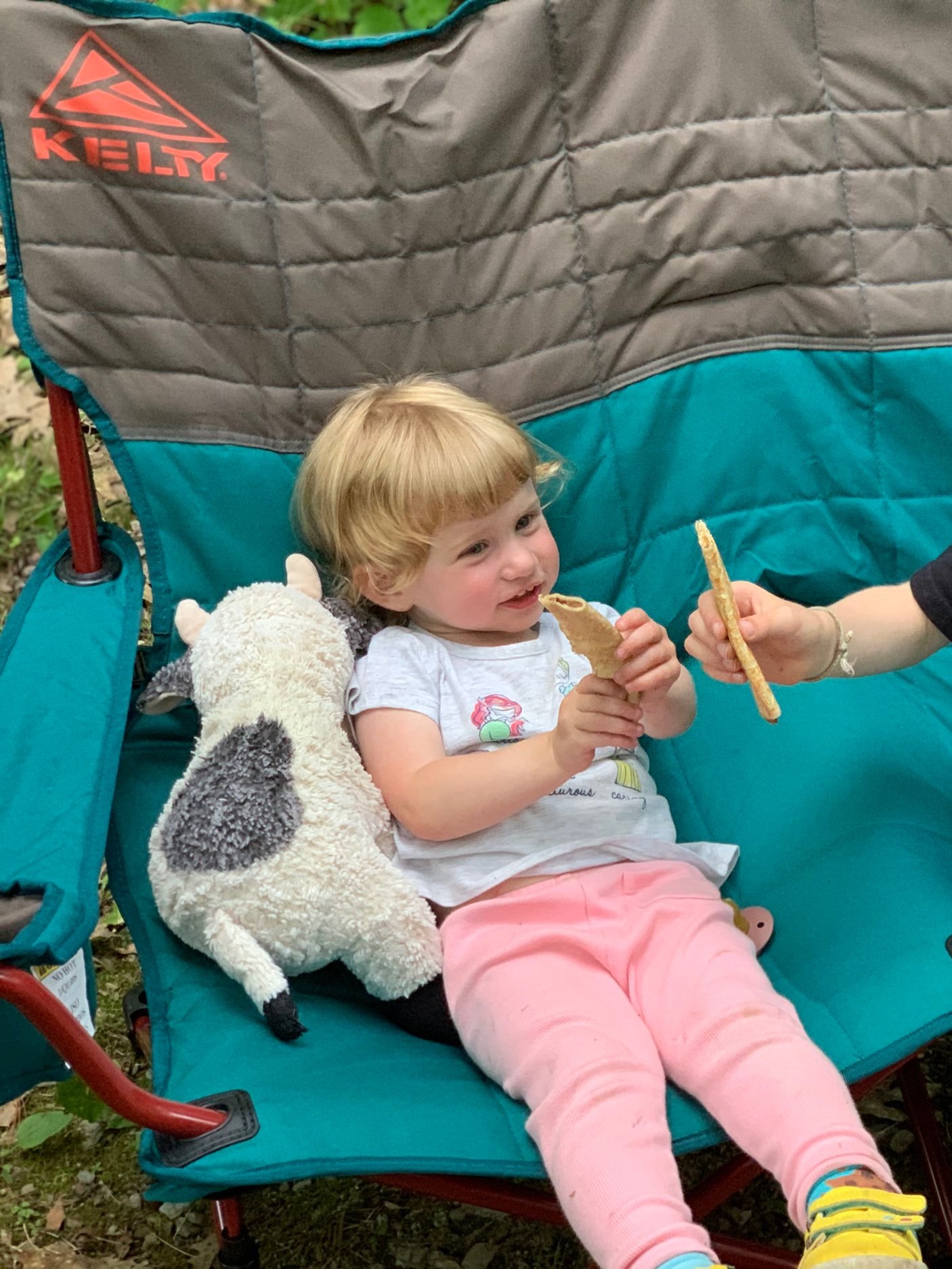
Comfort objects, favorite foods, and a familiar schedule bring consistency and reassurance to a new environment (especially one without walls).
Camping with Young Kids: A Deeper Dive
So you’ve asked yourself what is a good age to take kids camping and answered… this age! With proper planning and care, you can go camping with a baby just a few months old, so of course you can take toddlers or preschoolers camping and have a great time.
Here are our tips, some gear recommendations, and some food for thought that should help you prep for a family campout with kids. For the record, for our purposes we are talking about tent camping with toddlers, though if you’ll be cabin camping or RVing or such, much of this will still apply.
Planning Ahead
Planning ahead for your campout with kids means making your gear list (and checking it twice, sure) but it also means introducing your young kids to camping before you are actually out there. You can set up a tent in the yard or lay out sleeping bags in the playroom, you can read kids books about camping, you can show them pictures of and tell stories of past camping trips, you can practice things that will be a bit different out there by having a picnic for lunch or sitting out on the stoop and watching the sunset or the stars. And so on.
But beyond the work you do to get kids familiar with and excited about camping for the first time, you also need to legitimately plan through just about every aspect of the outing. What will be the best camping breakfast for kids, what ingredients will you need and what hardware is required for cooking and serving that meal? And the same for lunch and dinner and snacks and such.
What will be the layout of the air mats, pack-and-play (assuming your kid will sleep in an enclosure, and if they will, they should), and sleeping bags within the tent? Will it all fit? Do you need to pitch the tent at home and do a dry run? Where will the lantern night light perch and which sound machine will you use?
Where will the kids sit when they’re eating or playing a game? Does your toddler need a booster and how will you safely secure it? Does the site have picnic tables and benches or do you need to bring all your own furniture? Where will you do hand washings and tooth brushings and bathroom stuff? If your toddler is potty trained, bring a potty they’re comfortable using.
Research your campsite, look through your gear, plan your menus and activities, and make the kids a part of these processes when you can. And fake it some, if need be: let them think the way they “tested” out that folding camp bench or sleeping bag was absolutely mission critical when in fact you were just waiting for them to move so you could pack the gear down. The more ownership kids feel during the planning, the more enjoyment they will have during the outing.
Campsite Fun for Kids
You may need to invest amazingly little effort in helping kids have fun at the campsite. Sometimes ours literally run in circles for an hour out there. On the other hand, all of their usual fun stuff, from games to books to puzzles to art supplies to building toys and so forth will be back home – that is, all of it except for the precious few items you choose to pack along.
Selecting a few books, a few simple toys and games, and a comfort item or two is critical, as these can be fun and, well, comforting. We always bring at least three or four games along, making sure most of them are appropriate for both our younger and older child. And as for books, enjoying a hammock, bench, or riverbank reading Frog and Toad or Mercy Watson? Hard to beat that.
But beyond games and books and such that help pass time pleasantly, also help your child embrace the fact that the family is in a new and different environment that offers unique ways to have fun. That can mean spending an hour testing which twigs burn the fastest, looking for wild onions, or identifying woodland critters. Just as you will slip into a different MO when in nature, so too will your kids, perhaps with a bit of gentle guidance.
Getting Out In Nature
Your campsite is homebase, but it’s hardly the only place you’ll go when you go camping. A great camping trip with kids can involve hiking, exploring, paddling, foraging (if done safely – when in any doubt, never eat), fort building, even a bit of climbing and mountaineering (it’s OK to tell your youngster she just climbed a mountain even if it was a waist-high rock, see?) and so forth. With the right gear for exploring nature with kids, you can range out from the campsite and find the fun.
We have brought our trusty child carrier hiking pack on every outing since the latter half of 2018 and it makes all the difference, allowing the treks to continue for miles even after little legs get tired. We’ve also logged many miles pulling the kids in an off-road wagon (the Veer Cruiser is pretty hard to beat there). And when there’s water near the campsite, we bring our little canoe that’s the perfect size for one adult and one kid. You can also bring along a compact pop-up tent shelter (not your sleeping tent, e.g.) that can create a safe, shady spot at the beach, on the riverbank, in a sunny field, or simply as another play space at the campsite.
With each piece of hardware comes a bit more planning, of course: if you’re putting a kid in a hiking pack or wagon, make sure they also have good kids hiking boots or trail shoes for when you need a break. If you’ll be getting out on the water, they need a proper toddler life jacket. If you’ll be setting up a play space, treat the area with insect repellent. And so on.
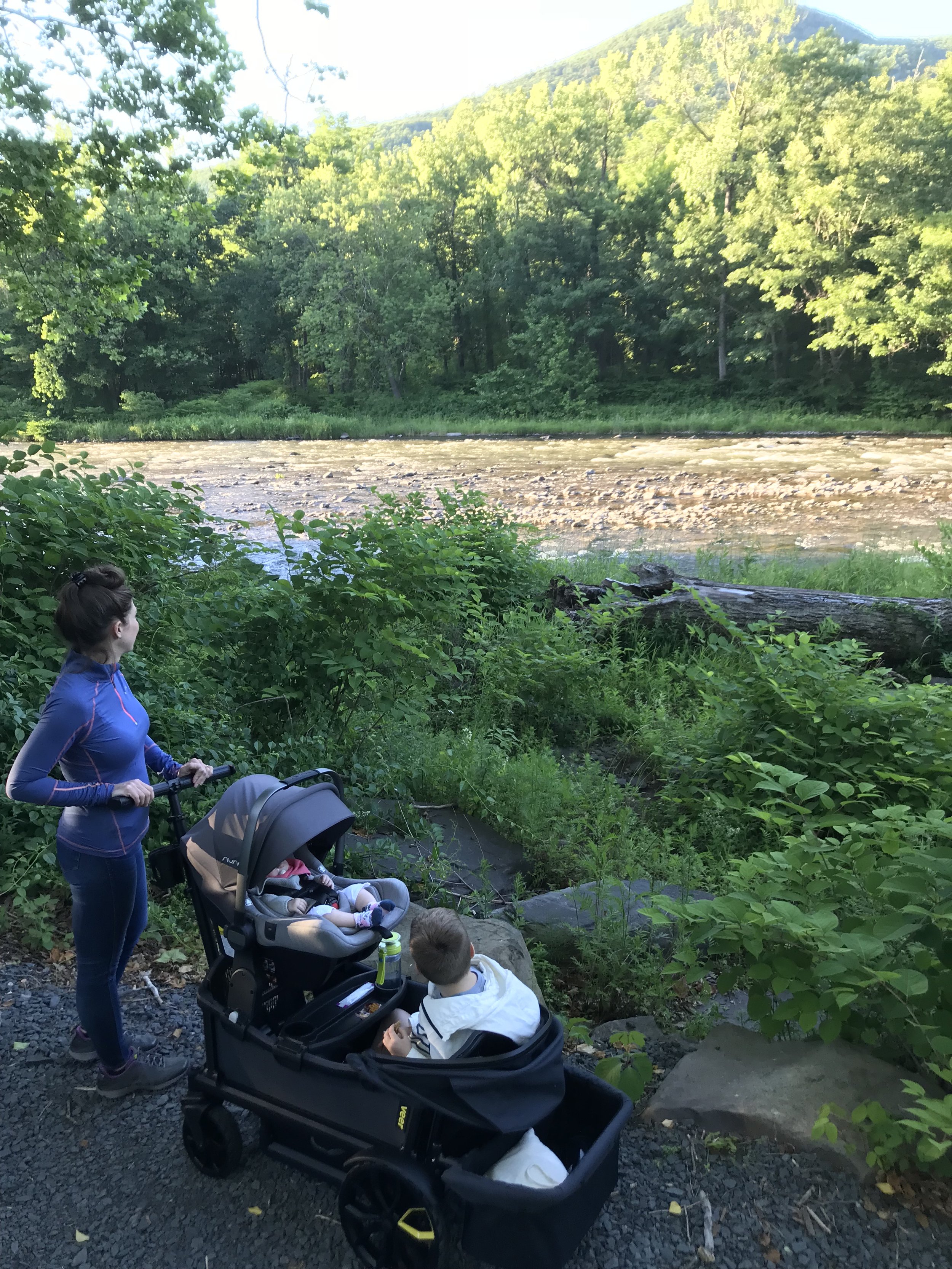
Having the right gear allows you to explore beyond your campsite and out in nature, especially when camping with a baby and a toddler.
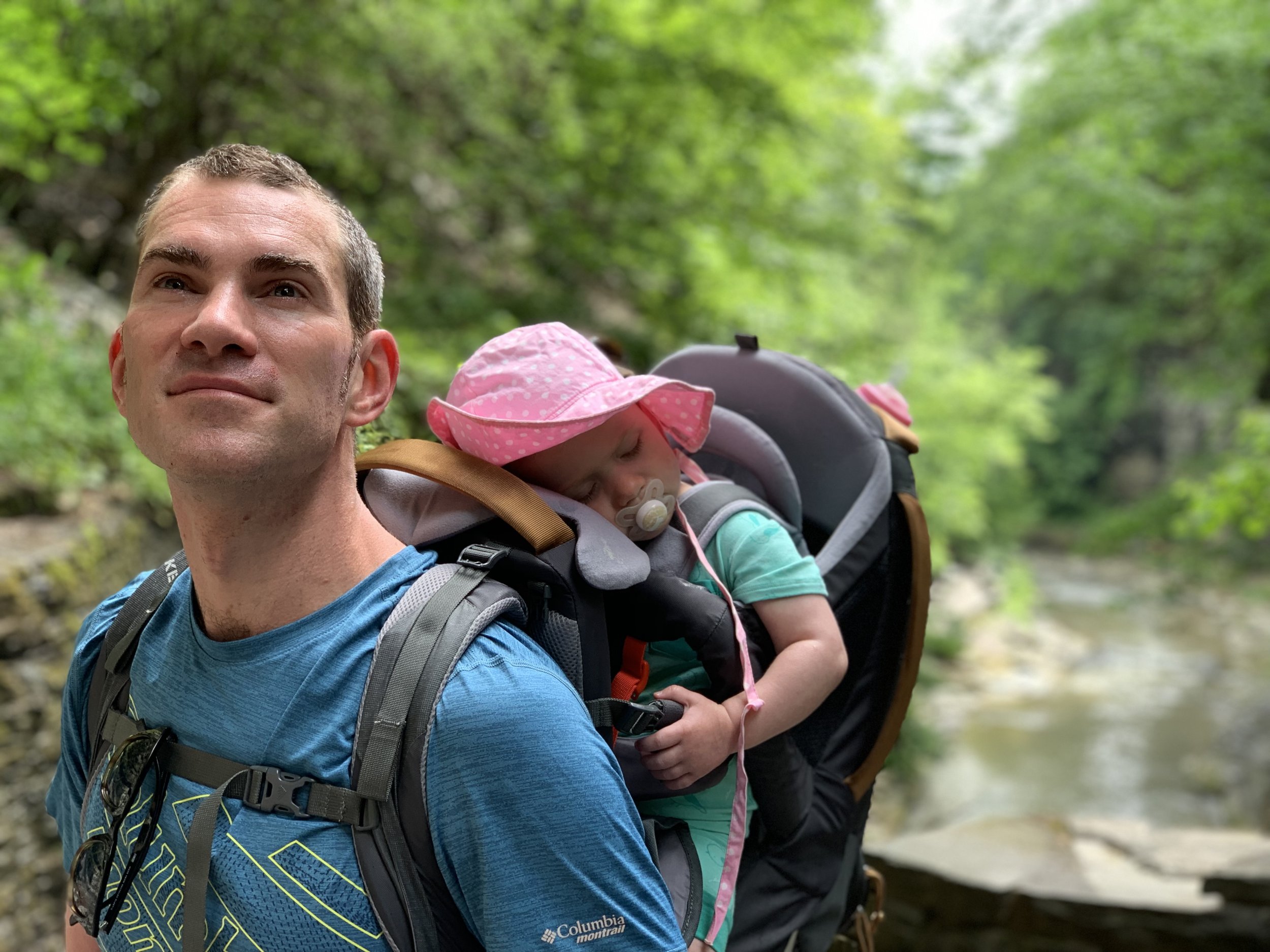
A successful camping trip mimics a toddler or baby's regular sleep schedule, so have a plan for when tiny legs get tired or it is just time for their regularly scheduled nap.
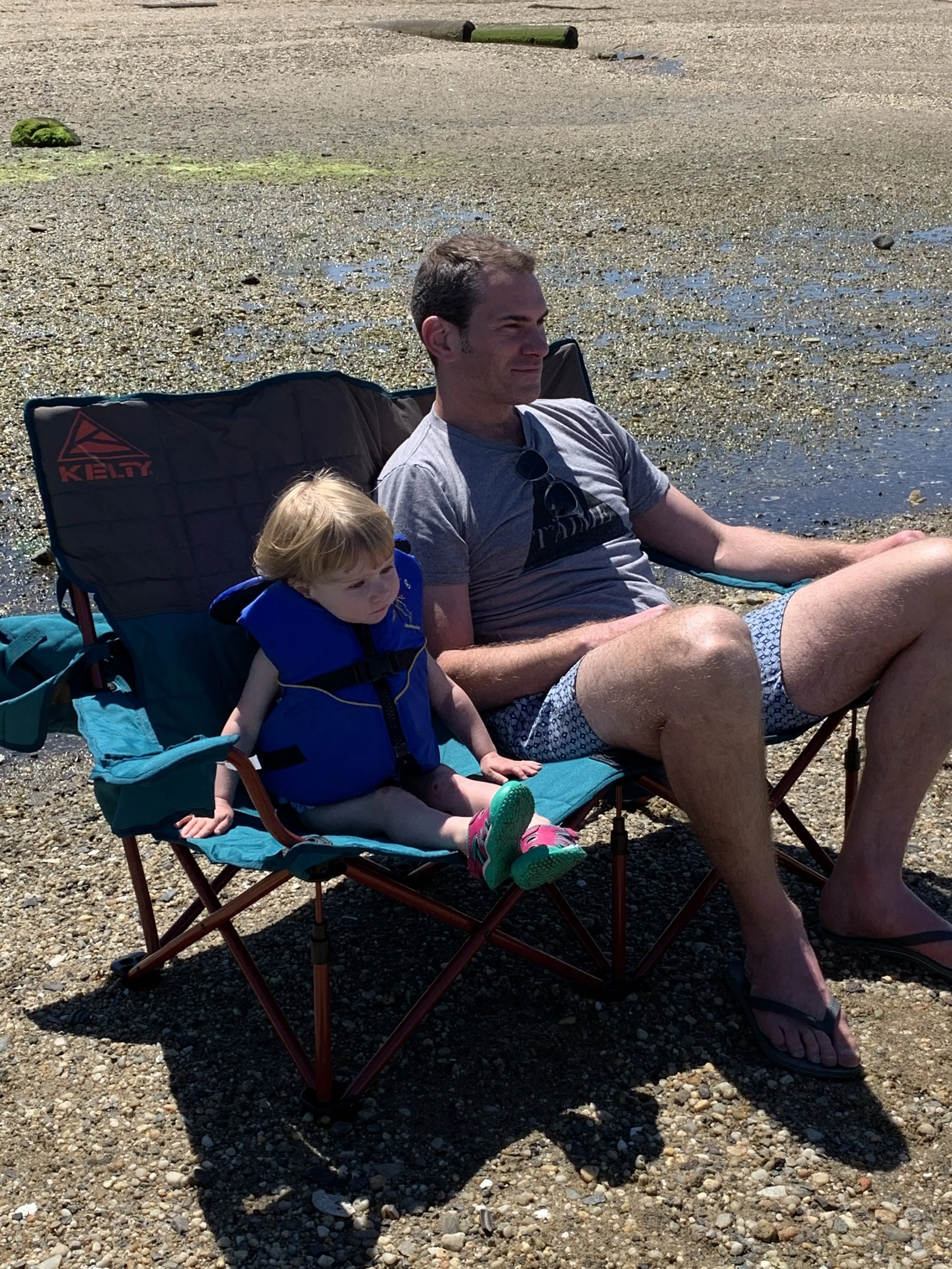
Safely exposing your children to different aspects of nature facilitates their love of the experience and of course, becoming stewards of the earth.
Campsite Safety
Camping with a toddler presents unique challenges when it comes to safety – which is not to say camping with a baby or camping with older kids do not both also elicit safety concerns, but toddlers tend to be able to get into anything and anywhere yet don’t have much common sense (sorry, toddlers, but it’s true), so you need to be hypervigilant about the unique safety concerns camping with toddlers presents.
The short of campsite safety with young kids comes down to setting up your campsite so you have a clear view of everywhere your kids can be and you have maximum control over what they can access. That means setting up your seat between theirs and the fire and camp stove. It means laying out your sleeping bag in front of the tent flap. It means setting up the tent as far from any ledges or hills one could fall down, water into which one could slip, logs over which to trip, and so on. For the moments that you do need to divert your attention you need a safe and contained space to deposit the kids. Prime example: The Veer Basecamp. Common sense stuff, sure, but when you’re spread thin in unfamiliar environs, you might miss a few potential danger areas as you orient and arrange the campsite.
Once the site is established, safely camping with kids comes down to having a stocked and readily accessible first aid kit, a way to manage or extinguish your fire, proper lighting, apparel and gear that suits the weather, and backups for all of it. In other words, all the same stuff you would count on were an emergency to arise at home, be that emergency an injury, a storm, a power outage, and so on.
Redundancy
Murphy’s Law is a good guide when you’re planning to go camping with a two year old or three year old. Or an older kid. Or a group of adults, franky, but let’s stay focused on campouts with toddlers.
Bring backup pajamas. Calculate how many diapers you’ll need, then pack two more. Bring a spare toothbrush. Bring extra snacks, including all-time favorites – and keep them concealed until needed for soothing/redirection. If possible, bring a spare sleeping bag, even.
When camping with kids, you have to assume that spills will happen, mud and sand will be tracked about, pants or a shirt may be ripped, and other things will happen that will leave apparel or gear unserviceable and in need of replacement.
Also plan for a given book or game to be rejected, a toy cast aside, a planned activity to be a fizzle, and so forth. Again, always have a Plan B. And when possible, a Plan C, too.
